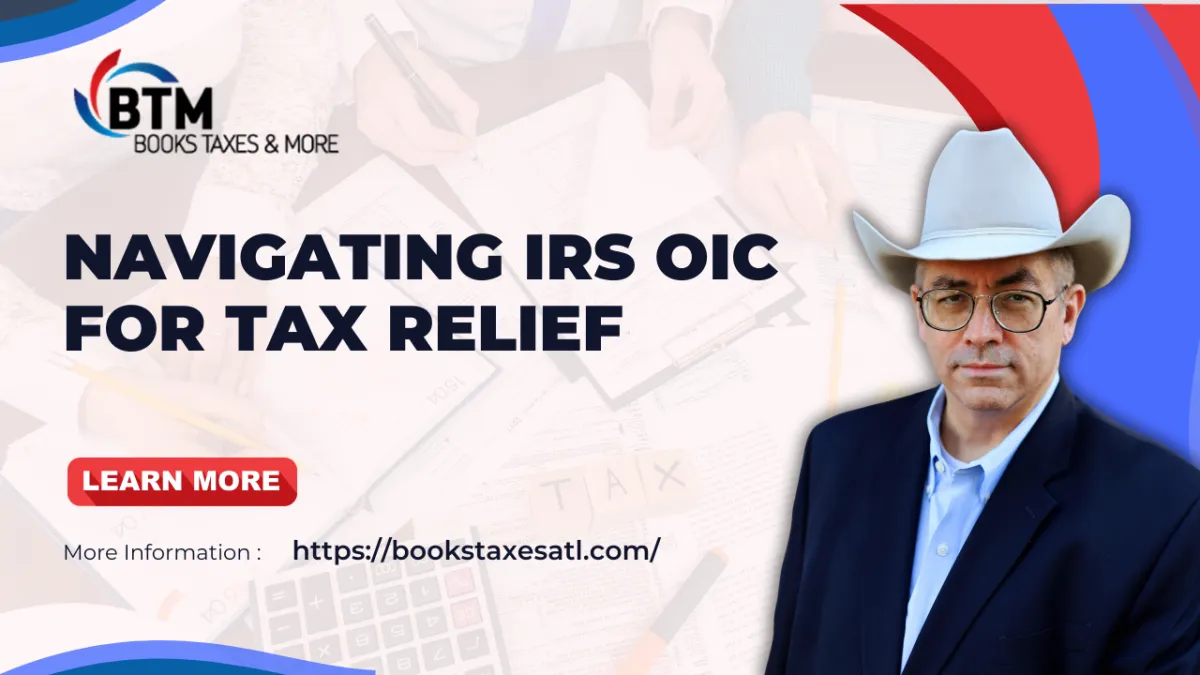
Navigating IRS Offer in Compromise for Tax Relief
For taxpayers facing overwhelming tax debt, negotiating a settlement with the IRS can be the best choice. The IRS Offer in Compromise (OIC) program provides a potential solution by allowing taxpayers to settle their tax liabilities for less than the full amount owed. However, a thorough understanding of IRS regulations and reasonable collection potential. To be successful, a taxpayer must understand the rules and procedures used by the IRS. This is where an experienced and qualified Enrolled Agent (EA) such as Steve Perry, EA from Books, Taxes & More is critical.
Understanding Offer in Compromise
An Offer in Compromise is a tax relief program designed to help taxpayers who are unable to pay their full tax debt due to financial hardship. The IRS considers several factors when evaluating an OIC, including income, expenses, assets, and other factors affecting collection potential. If the IRS determines that a taxpayer’s offer is the most they can reasonably expect to collect, they may accept a reduced settlement amount.
The Role of IRS Representation
1. Assessing Eligibility
Not all taxpayers qualify for an Offer in Compromise. A tax professional, such as an Enrolled Agent, or tax attorney, can evaluate a taxpayer’s financial situation to determine whether they meet the IRS’s stringent eligibility requirements. This assessment prevents unnecessary applications that are likely to be rejected. A rejected application can add up to two years to the amount of time the IRS has to collect the back taxes.
2. Preparing a Strong Application
The OIC application process requires extensive financial disclosure. Steve Perry, EA will prepare Form 656 (Offer in Compromise) and Form 433-A(OIC) (Collection Information Statement), ensuring that all required documentation is accurate and complete. Errors or omissions can lead to delays or outright rejection of the offer.
3. Negotiating with the IRS
Once the application is submitted, the IRS may counteroffer, request additional documentation, or even reject the offer. Steve Perry, EA understands IRS negotiation tactics and can advocate on behalf of the taxpayer to increase the chances of a successful settlement. Steve can also take rejected applications to appeals if appropriate.
4. Avoiding Common Pitfalls
Many taxpayers make mistakes when submitting an OIC, such as underestimating their ability to pay, the proper accounting for assets, or failing to meet compliance requirements. Steve Perry, EA will help taxpayers avoid these pitfalls by ensuring all past tax returns are filed and that they remain in compliance with tax obligations throughout the process.
Conclusion
Navigating the IRS Offer in Compromise process is complex and requires a thorough understanding of tax laws and negotiation strategies. Hiring Steve Perry, EA from Books Taxes & More significantly enhances the likelihood of a successful settlement, providing relief to taxpayers burdened with tax debt. If you are struggling with tax liabilities and considering an OIC, call Steve at 678-717-9818.
